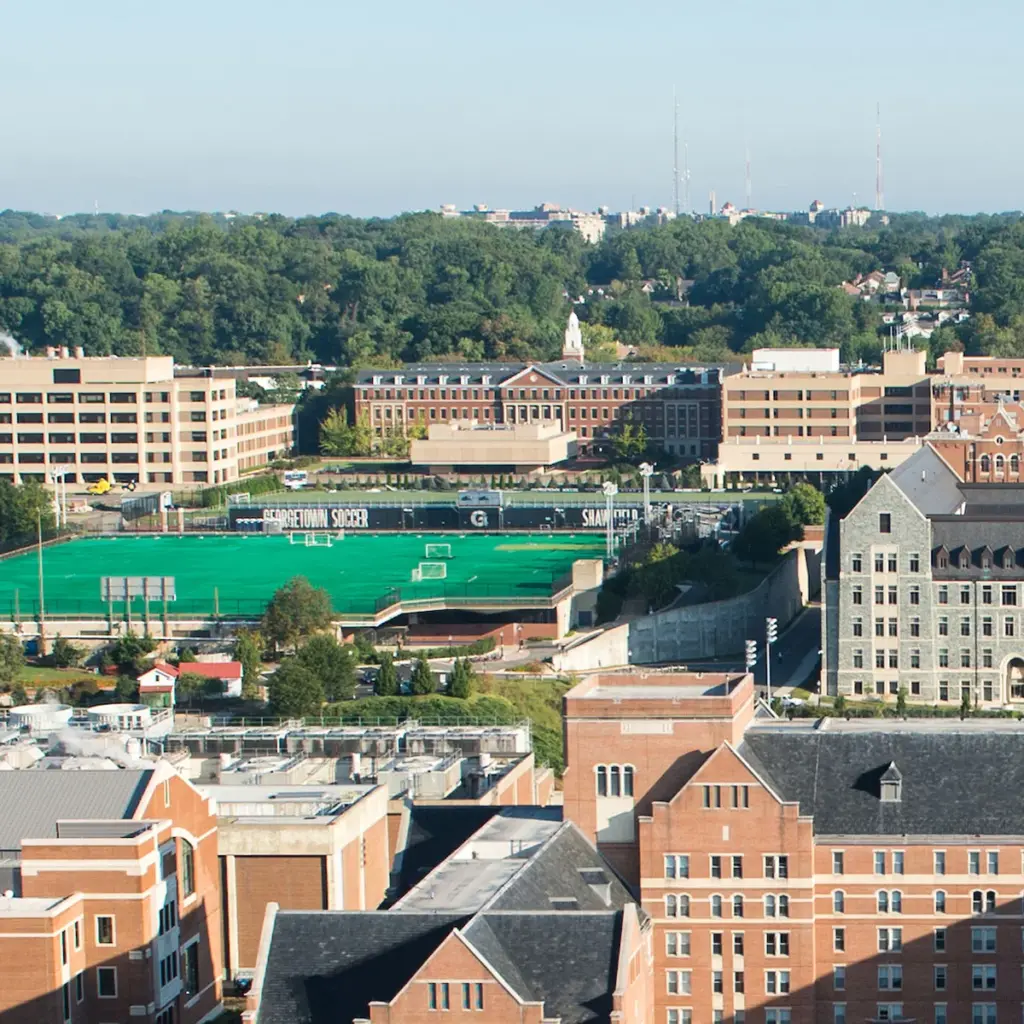Highly motivated Georgetown B.S. in Human Science students can complete the requirements for the M.S. in Integrative Neuroscience in one semester after completing the bachelor’s program.
The M.S. in Integrative Neuroscience curriculum includes an extensive integrated overview of neuroscience, statistics, experimental design, and technical approaches.
Our graduates have a variety of career opportunities, including but not limited to the research industry, government agencies, education, and laboratories. We are dedicated to placing our students in their desired career field. Graduates can also continue their education with Ph.D. and M.D. programs.
Application
HSCI students with a minimum GPA of 3.5 in the major are eligible to apply to this program by October 1 of their junior year. Students who wish to apply should inquire with Jason Tilan, Director of Accelerated BGE Pathways, Department of Human Science.
For more information about our program and admissions, please contact us.
Timeline
Undergraduates start taking master’s courses in their senior year, earning the master’s degree in the fall after completing the Bachelor of Science.

Degree Plan
Below is the degree plan for students to complete the standard Accelerated M.S. program. Alternatively, students may choose the M.S. with Concentration in Biomedical Science Policy & Advocacy, which has its own BSPA Concentration degree plan.
Junior – Spring
Take HSCI 3090 Immunology this semester.
Senior – Fall
| Course Name | Credit(s) |
|---|---|
| HSCI 4972 Human Science Seminar/Capstone I | 3 |
| HSCI 4510 Physiological Adaptations | 4 |
| INNS 6500 Basic Neuroscience I | 4 |
| 11 Credits |
Note: Full-time undergraduate status requires 12 credits.
Senior – Spring
| Course Name | Credit(s) |
|---|---|
| HSCI 4973 Human Science Seminar/Capstone II | 3 |
| INNS 6501 Basic Neuroscience II | 4 |
| INNS 6201 Imaging in Neuroscience | 2 |
| NSCI 6007 Molecular Mechanisms of Neurodegeneration | 3 |
| 12 Credits |
Upon completion of the undergraduate degree requirements, you will receive your bachelor’s degree and may participate in Commencement with your undergraduate class. Contact your advising dean for more information.
Master’s – Fall
Complete the Biomedical Graduate Education Orientation at the start of the semester.
| Course Name | Credit(s) |
|---|---|
| INNS 6000 Critical Readings in Neuroscience I | 1 |
| INNS 6300 Translational Neuroscience | 2 |
| INNS 6400 Experimental Approaches & Techniques | 2 |
| Graduate Fall Electives | 12 |
| 17 Credits |
- Students pay the per-semester flat rate.
- Recommended electives include:
- BSPA 6603 Science and Technology in the Global Arena
- BSPA 6606 Public Policy for Scientists (Science Policy Concentration)
- INNS 9000 Research Practicum (Research Concentration)
- NSCI 6006 Computational Neuroscience
- NSCI 6008 Topics in Neuroinflammation
- Follow the Biomedical Graduate Education Graduating Student Checklist to apply for graduation and to register for Commencement the following spring if you wish to attend.
Degree Plan: BSPA Concentration
Below is the degree plan for students to complete the M.S. with Concentration in Biomedical Science Policy & Advocacy by taking three specific graduate electives.
Junior – Spring
Take HSCI 3090 Immunology this semester.
Senior – Fall
| Course Name | Credit(s) |
|---|---|
| HSCI 4972 Human Science Seminar/Capstone I | 3 |
| HSCI 4510 Physiological Adaptations | 4 |
| INNS 6500 Basic Neuroscience I | 4 |
| 11 Credits |
Note: Full-time undergraduate status requires 12 credits.
Senior – Spring
| Course Name | Credit(s) |
|---|---|
| HSCI 4973 Human Science Seminar/Capstone II | 3 |
| INNS 6501 Basic Neuroscience II | 4 |
| INNS 6201 Imaging in Neuroscience | 2 |
| NSCI 6007 Molecular Mechanisms of Neurodegeneration | 3 |
| BSPA 7005 Science Diplomacy and World Health | 2 |
| 14 Credits |
- Upon completion of the undergraduate degree requirements, you will receive your bachelor’s degree and may participate in Commencement with your undergraduate class. Contact your advising dean for more information.
- Apply for master’s graduation in your second-to-last semester. Follow the Biomedical Graduate Education Graduating Student Checklist.
Master’s – Fall
Complete the Biomedical Graduate Education Orientation at the start of the semester.
| Course Name | Credit(s) |
|---|---|
| INNS 6000 Critical Readings in Neuroscience I | 1 |
| INNS 6300 Translational Neuroscience | 2 |
| INNS 6400 Experimental Approaches & Techniques | 2 |
| BSPA 6603 Science & Technology in the Global Arena | 4 |
| BSPA 7906 Capstone Project | 3 |
| Graduate Fall Elective(s) | 3 |
| 15 Credits |
- Students pay the per-semester flat rate.
- Follow the Biomedical Graduate Education Graduating Student Checklist to apply for graduation and to register for Commencement the following spring if you wish to attend.
Master’s Courses
Visit M.S. in Integrative Neuroscience Courses to browse required and elective courses.
Learn More
Accelerated Programs FAQ
Answers to questions about the accelerated program.
Career Readiness
Our students benefit from the services of the Biomedical Graduate Education career office, including one-on-one advising, skills workshops, leadership programs and more.

